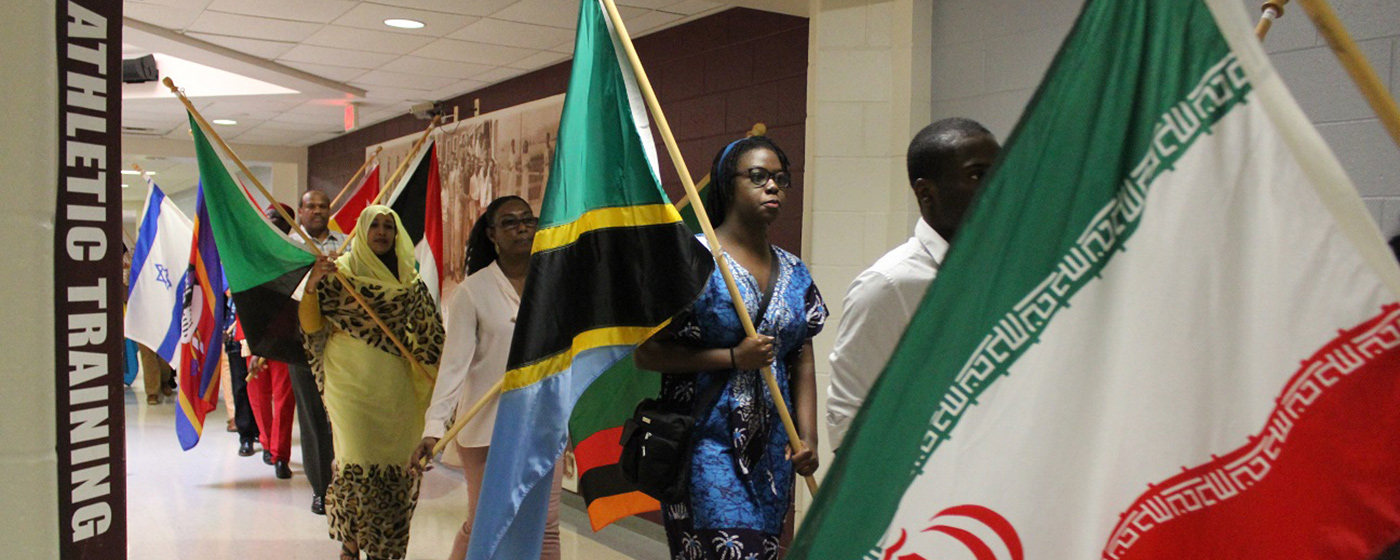F-1 Student Visa
J-1 Student Visa
Tourist Visas
F-1 STUDENT VISA
An F-1 visa may be granted at a U.S. consulate or embassy to an individual who is qualified to pursue a full course of study at an academic or language institution authorized to admit foreign students. At the embassy or consulate, the individual will be required to submit an I-20 form and proof of adequate funding for one year of study (or the length of the program if less than one year), along with the application for a nonimmigrant visa (OF-156). In addition, the individual must prove that he or she intends to enter the United States for educational purposes only and that the applicant has a permanent residence in a foreign country and strong family or business ties which he or she has no intention of abandoning.
It is extremely important for a student on an F-1 visa to maintain legal status throughout the program of study in the U.S. The Illegal Immigration Reform and Immigrant Responsibility Act of 1996 places a particular emphasis on the need for students to take responsibility for maintaining F-1 student status. Please read Staying Legal to review the basic immigration regulations governing F-1 students.
J-1 STUDENT VISA
A J-1 visa is issued to a participant in an Exchange Visitor Program approved by the U.S. Information Agency (USIA). Participants can be in one of the following categories: student, research scholar, professor, short-term scholar, alien physician, or trainee. To obtain a J-1 visa, an individual must be accepted by a U.S. institution that has an approved Exchange Visitor Program. At the University of Maryland Eastern Shore, the Director of Admissions issues the Certificate of Eligibility (IAP-66) to students who qualify to enter the U.S. under the USC J-1 exchange program.
At the embassy or consulate, the exchange visitor will be required to submit an IAP-66 form along with the application for a nonimmigrant visa (OF-156). In addition, the individual must prove intent to enter the United States for educational purposes only and that the applicant has a permanent residence in a foreign country and strong family or business ties which he or she has no intention of abandoning.
It is extremely important for a student on a J-1 visa to maintain legal status throughout the program of study in the U.S. The Illegal Immigration Reform and Immigrant Responsibility Act of 1996 places particular emphasis on the need for students to take responsibility for maintaining J-1 student status. Please read Staying Legal to review the basic federal regulations governing J-1 students.
TOURIST VISAS
B-2 Status
An individual who enters the U.S. in B-2 visitor status should be engaged in the following types of activities: visits with friends or relatives, travel, sightseeing or medical treatment. A B-2 visitor will be admitted for a minimum period of six months, and may be eligible to apply to the INS for extensions of stay in increments no longer than six months each.
A student who plans to study at the University of Maryland Eastern Shore should not attempt to enter on a tourist visa. The immigration officer at the port of entry will refuse entry if he or she determines that an alien is entering on a B-2 visa for purposes other than those of a touristic nature.
We strongly recommend that a new student contact the Office of International Students if he or she is having trouble obtaining an F-1 or J-1 student visa. To enter the U.S. on a tourist visa is not a viable solution.
Visa Waiver Program (WT)
An Individual may be eligible to enter the U.S. in B visitor status without a visa, provided he or she has a valid passport issued by a designated country, a round trip airline ticket, and the intent to stay in the U.S. for a period not to exceed 90 days. The following 25 countries participate in the visa waiver program: Andorra, Argentina, Australia, Austria, Belgium, Brunei, Denmark, Finland, France, Germany, Iceland, Ireland, Italy, Japan, Liechtenstein, Luxembourg, Monaco, The Netherlands, New Zealand, Norway, San Marino, Spain, Sweden, Switzerland, and United Kingdom.
A visitor who applies for entry under the visa waiver program is not eligible for an extension beyond the 90 days, and can not work, study or change to another nonimmigrant visa status.
We strongly recommend that a new student contact the Office of International Students if he or she is having trouble obtaining an F-1 or J-1 student visa. To enter the U.S. on the visa waiver program is not a viable solution.
Websites To Visit
- U.S. Immigration & Naturalization Service
- U.S. Department of State
- Foreign Embassies and Consulates in the United States
Use the HTML Cheat Sheet for color picker, search for special HTML characters, get examples of the most common tags and generate any tags.


